5 Things to Do in Little Tokyo, California
Never been before? We’ll be your trustee Little Tokyo guide with a day’s worth of fun things to do in Little Tokyo.
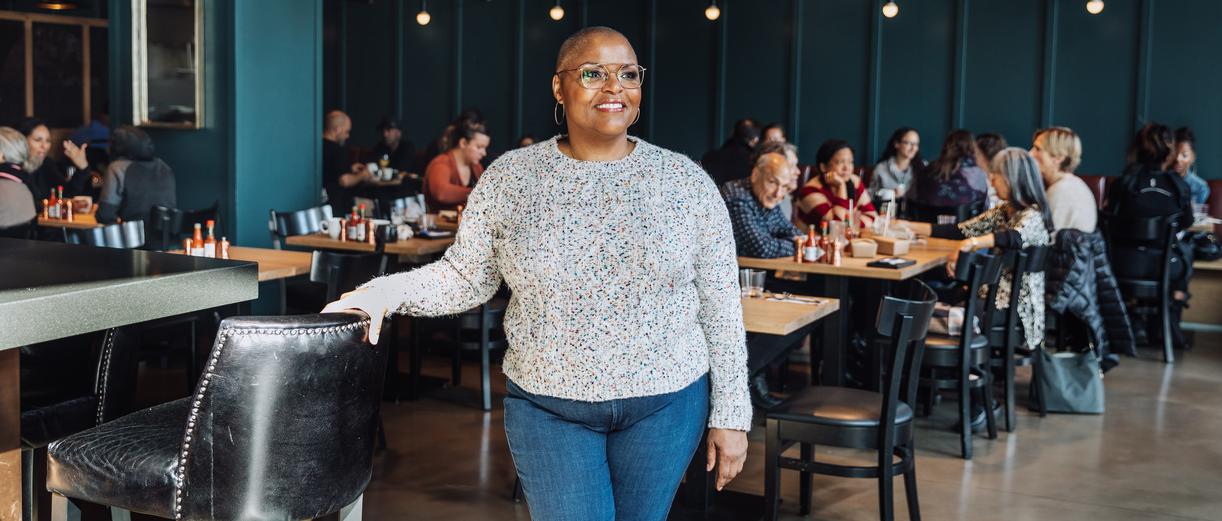
Tanya Holland describes her tumultuous journey to opening Brown Sugar Kitchen in Oakland and becoming a top chef.
Fierce Femme is an ongoing California.com series showcasing female entrepreneurs who are disrupting their respective industries, breaking barriers, and blazing new trails.
On a busy Thursday morning, the streets of Uptown Oakland are bustling with commuters speed-walking to work and streams of cars barreling down Broadway street. But as soon as you step inside Brown Sugar Kitchen, you’ll find a different scene: The airy, sun-filled space sets you at ease with its warm wood accents and calming teal walls, as the scents of sizzling bacon and freshly roasted coffee entice you to take a seat. Waiters walk by balancing plates of crispy cornmeal waffles topped with pieces of perfectly golden, buttermilk fried chicken; hearty vegetable scrambles alongside thick slices of artisan bread; and fluffy biscuits laced with bacon, cheddar, and scallions. Chill music plays in the background, punctuated only by the soft sound of conversations and the occasional clang of pots and pans.
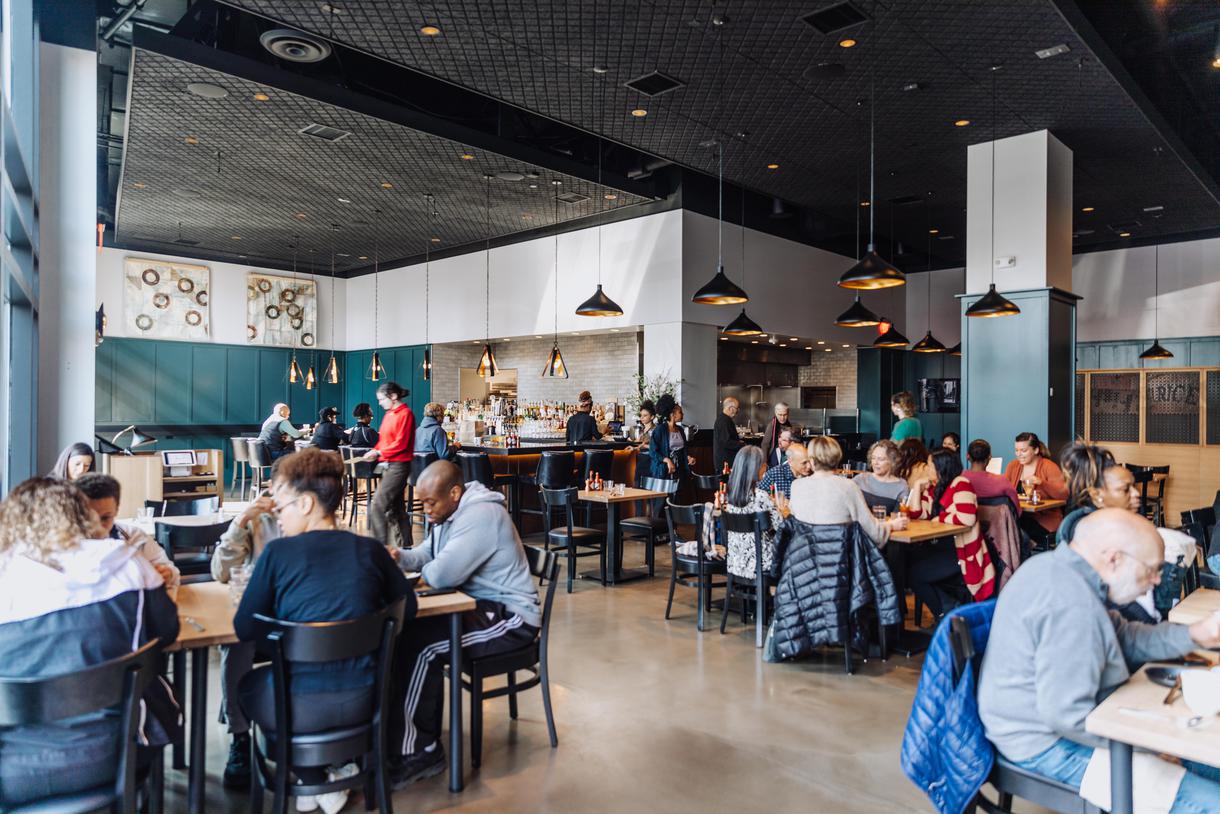
Step into the world of chef Tanya Holland, where her exceptional culinary skills, meticulous attention to detail, and high standards have elevated her cozy soul food eatery to an esteemed culinary landmark. This spot has garnered attention from celebrities such as the musician Drake, Oscar-winning actress Lupita Nyong’o, basketball sensation Steph Curry of the Golden State Warriors, renowned author Ta-Nehisi Coates, and the legendary 49ers player Joe Montana. More than a decade on, Holland's restaurant remains a vibrant hub for community interactions, drawing a diverse crowd that includes local entrepreneurs, creative minds, young professionals, and families from all over the Bay Area and beyond, making it a lively and inclusive spot for all.
Take this morning as an example: It's a bustling Thursday at 9:45 a.m., and almost every seat is taken. "It's like this all the time, even on weekdays. It's quite remarkable," Holland, aged 54, observes. The acclaim for Brown Sugar Kitchen hasn't gone unnoticed since its opening in January 2008. Holland has received numerous honors and recognition, including having "Tanya Holland Day" declared by the City of Oakland on June 5, 2012, in recognition of her pivotal role in fostering community spirit and contributing to Oakland's reputation as a culinary hotspot. Her influence extends beyond the kitchen; she's appeared on popular shows such as The Today Show.
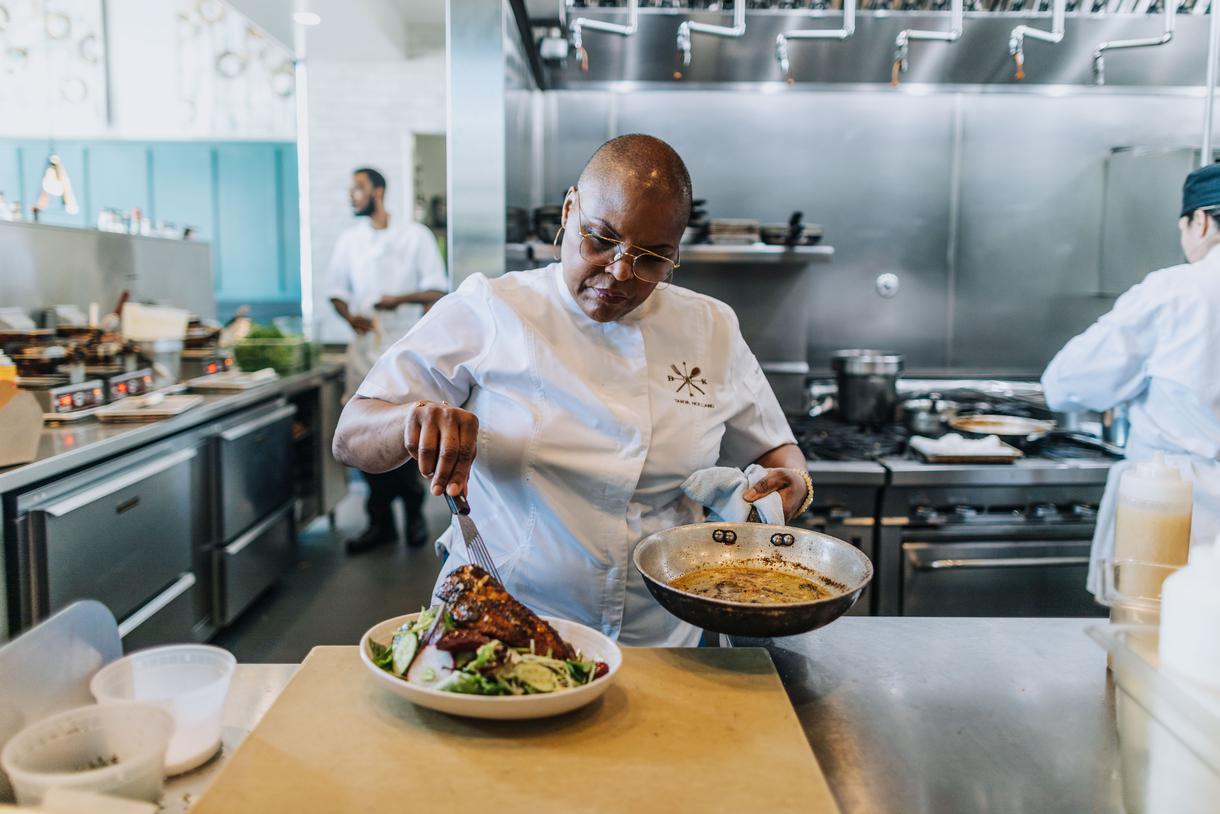
In the year 2000, Tanya Holland secured a role as a co-host on the Food Network's "Melting Pot," a show dedicated to exploring global ethnic cuisines, alongside chefs Aaron Sanchez, Cat Cora, and Padma Lakshmi. This opportunity propelled Holland into the limelight, and following the conclusion of the show, she released her first cookbook, "New Soul Cooking: Updating a Cuisine Rich in Flavor and Tradition." Despite her growing fame, Holland yearned to return to the direct engagement of serving patrons. Thus, upon relocating to Oakland in 2003, she immediately resumed her quest to find the perfect location for her restaurant. Holland initially set her sights on prime spots in Jack London Square or Old Oakland, but faced challenges with landlords who were reluctant to lease space to her.

Does your business rank among the best in California?
nominate a businessLearn more about our selection criteria and vetting process.
“It was really hard to convince them that I had the aptitude to be successful in this industry,” she remembers. “I had to keep proving that I had skills, even after 20-plus years of cooking. They would tell me, ‘You’re not a proven entity. You’ve never owned a restaurant before.’ Meanwhile, I had tons of experience, I had been on TV, I had written a cookbook … I knew I could fill the seats, and I knew I could build a business. I just needed a chance.
“It's really frustrating and sad to face discrimination in this business, because so much of American cuisine originated in the black woman’s kitchen,” Holland continues. “We cooked during slavery and after slavery, using a fusion of African, European, and Asia spices. … But [the restaurant industry] is based on patriarchal systems that support men but not women, so it’s harder for us to get the same support and resources men [chefs] do.”
"There aren’t a lot of examples of people who look like me doing what I’ve done. I feel like I really need to be a role model for women." Tanya Holland

Despite the challenges she faced, she continued to believe in herself and her vision—and her tenacity, grit, and perseverance paid off. She eventually found a small space in industrial West Oakland, and thanks to funding from the city and donations from friends, family, and neighbors, she was finally able to bring Brown Sugar Kitchen to life. The focus? Elevated soul food with California flair.
The concept was a total hit. Her 50-seat, diner-style eatery served nearly 2,000 customers each week, until Holland decided to shutter the flagship restaurant to focus on the new iteration in trendy, booming Uptown. But Brown Sugar Kitchen continues to draw droves of customers with its innovative, flavorful dishes, including the signature fried chicken and waffles, fluffy beignets, comforting chicken and shrimp gumbo, and blackened catfish. It’s also enabled Holland to expand into dinner service and offer new items such as braised oxtail, Andouille deviled eggs, and roasted corn hush puppies. “This new space really reflects my taste and what I really wanted to create from the beginning, so I feel grateful that I’ve had the opportunity to execute that,” she says.
And Holland isn’t finished yet. In late summer, she’s launching a new concept at the venerable Oakland Museum of California—and it’s unlike anything she’s ever done before. Instead of dishing up soul food with a California twist, Town Fare will have a plant-forward focus, serving farm-fresh salads, grain bowls, and noodles with North African, West African, and Caribbean flavors. While it’s a deviation from what Holland is used to, she’s excited about the new venture and the opportunity to represent Oakland and the Golden State.
“Oakland is such a diverse community, and California has so many amazing regional differences, so I wanted [Town Fare] to show how we eat here: [The food is] very soulful, no matter what your heritage is,” Holland says. “I also wanted to use it as a platform for sustainability. That’s why we’re making the menu more plant-forward and being really mindful of the environment and sourcing sustainable ingredients, because that's the way of the future.”

California’s incredible culinary bounty has deeply influenced Holland, who sources local, organic, and sustainable ingredients as much as she can to ensure her food is fresh and distinctly Californian. Her next cookbook, tentatively titled California Soul, will showcase how much California has impacted her cooking and highlight the unique ways people like to eat and cook here.
With a booming restaurant, a new one in the works, and an upcoming cookbook, Holland might appear too busy to take on much else. But she’s always thinking about what’s on the horizon and continuously has multiple irons in the fire. “One of my friends was like, ‘If you don’t ever do anything else in your life, you’ll be fine,’ but I’m not one to rest on my laurels,” Holland says. “I’m always looking to see what’s next. It’s just kind of my nature; I can’t help it. There’s so much more that I still aspire to do—and that I know I can do if given the opportunity.”

Q: What are your favorite comfort foods?
A: Spaghetti with red sauce, chocolate, and chocolate chip cookies. I’m a cookie monster—I love cookies so much.
Q: What do you do for fun?
A: I hardly have time for hobbies, but I love going to spas. If I could go to a spa every weekend, I’d be happy. And just walking around the different neighborhoods in Oakland is always fun. I also like going to Lake Merritt and hiking in the Oakland Hills. There are such great views and redwood groves up there, and people don’t even realize it.
Q: What do you love most about Oakland?
A: The diversity; you see all kinds of people here. And it’s a city, but it’s a little slower paced and very accessible.
Q: Who are your culinary icons?
A: Emily Luchetti, a pastry chef who I met when I first moved [to the Bay Area]. She’s been such an inspiration, and even though I’m not a pastry chef, I think she’s amazing. Also, Leah Chase in New Orleans, who’s still cooking in her 90s! I have a photo of her up on the wall [in Brown Sugar Kitchen]. And Edna Lewis and Julia Child, of course.
Q: What is your advice to aspiring female entrepreneurs?
A: You need to learn as much as possible from other people, if they’re willing to teach you. I couldn't find people willing to teach me and share knowledge, but I love sharing knowledge and encouraging young women. I advise: Get all your ducks in a row and make sure you’ve had several people review your business plan, you’ve got good legal representation, and you’ve got good accounting. It’s great to be passionate about something, but you still need to treat it like a business if you want it to be sustainable.


Never been before? We’ll be your trustee Little Tokyo guide with a day’s worth of fun things to do in Little Tokyo.
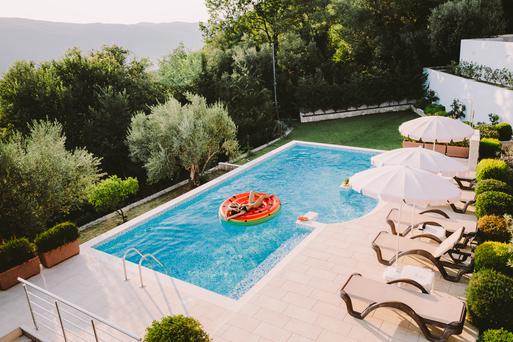
People go on Memorial Day weekend getaways as an indirect celebration of life. How do you plan on celebrating the long weekend?
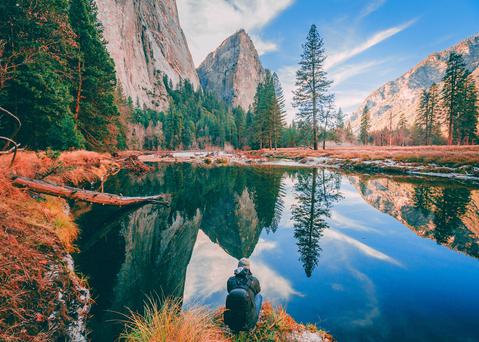
From undulating mountains, to coastal expanses, to verdant forests, here are some of the top spots for backpacking in California.

Settled off the California coast, the Channel Islands offer endless adventures. Here are the best things to do and how to get there.

